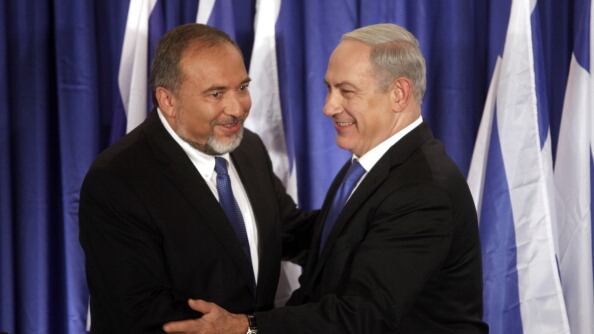The new Likud-Yisrael Beitenu will inevitably win the largest number of Knesset seats in the upcoming January 22 election. But the question is whether Netanyahu will inevitably form the next government—and that depends on what happens in the right and left "blocs." In proportional representation, no one party ever wins an absolute majority, so what matters isn't just the size of its showing but its ability to muster over 60 seats (out of 120) by bringing other parties into a coalition.
Israeli politics are usually about security issues, but this time, there's a challenge to the old political left-right divide on the Palestinian issue. Domestic bread-and-butter issues are center-stage. Other parties won’t let Netanyahu forget that in the summer of 2011, hundreds of thousands of Israelis marched in the streets demanding tax breaks and affordable housing. The Israeli center-left hopes to seize upon the social discontent—and, given social issues' prominence, just might be able to eke out a win. In the process, it's abandoning its historic focus on the peace process and responding to Israelis' indifference, distrust of the Palestinian leadership and the absence of any bold Palestinian offer that could force the debate.

The election was initially timed to divert attention from economic issues and to focus primarily on the threat from Iran. But concern about the continued prominence of social policy issues in the campaign is one reason Netanyahu hastened to join forces with Lieberman.
Now, campaign lines are clearly drawn. On the one side are two men who espouse neo-liberal economics and whose careers are built on the politics of fear. On the other side are the rest. Therein lies the opportunity.
Notably, Labor is reinventing itself as the dominant social-democratic voice and attracting new talent like Itzik Shmuli and Stav Shafir, leaders of last year’s protest. Party leader Shelly Yachimovich is fighting the election on grievances that fuel middle-class discontent. So is broadcaster Yair Lapid, who’s formed a new party, and Aryeh Deri, the comeback leader of the ultra-Orthodox Shas, who’s crafting a social policy platform he hopes will have broad appeal. They're all trying to reach young voters who stayed home in the 2009 election but filled the streets spontaneously two years later—and who continue to be engaged in community activism. If that energy is now translated into votes, Netanyahu might still be surprised.
Shas may have another advantage: many Likud voters are traditional Mizrahi Jews, for whom Lieberman's anti-religious stance is anathema. With the charismatic Deri in a leadership position, they may vote for Shas and increase its power as a swing party. Ultimately, Shas will go with whoever satisfies its demand for financial support for a largely low-income constituency. A strong center-left showing may move Deri away from Likud-Beitenu.
To compete with Netanyahu, Labor's calling for a "big-tent" party and is wooing former Kadima leader Tzipi Livni. If ever there was a chance for the cluster of smaller center-left parties to coalesce around a domestic agenda, it's now. Israelis are ripe for the conversation and aren't fooled by security-related rhetoric that's exploited for political purposes. An alliance may end up being futile, but at the very least, it will make Netanyahu's job harder on the way to the top slot.






